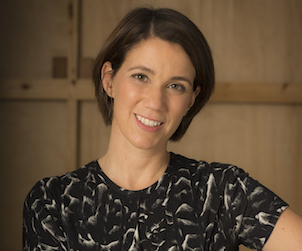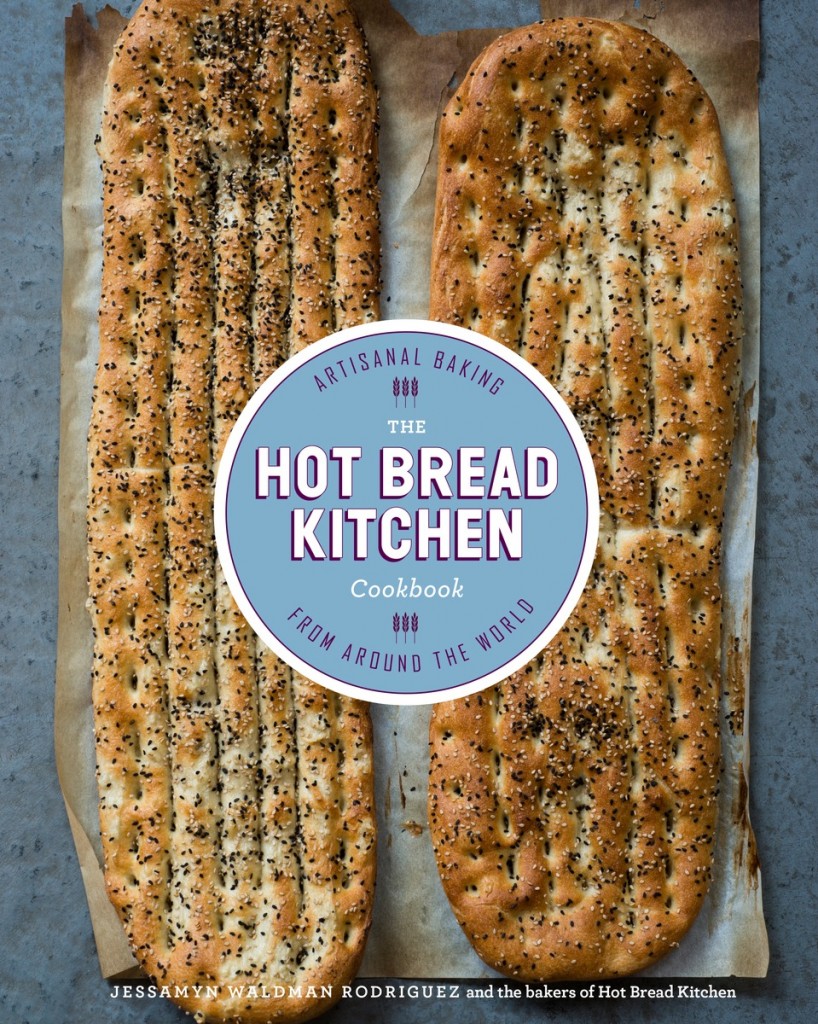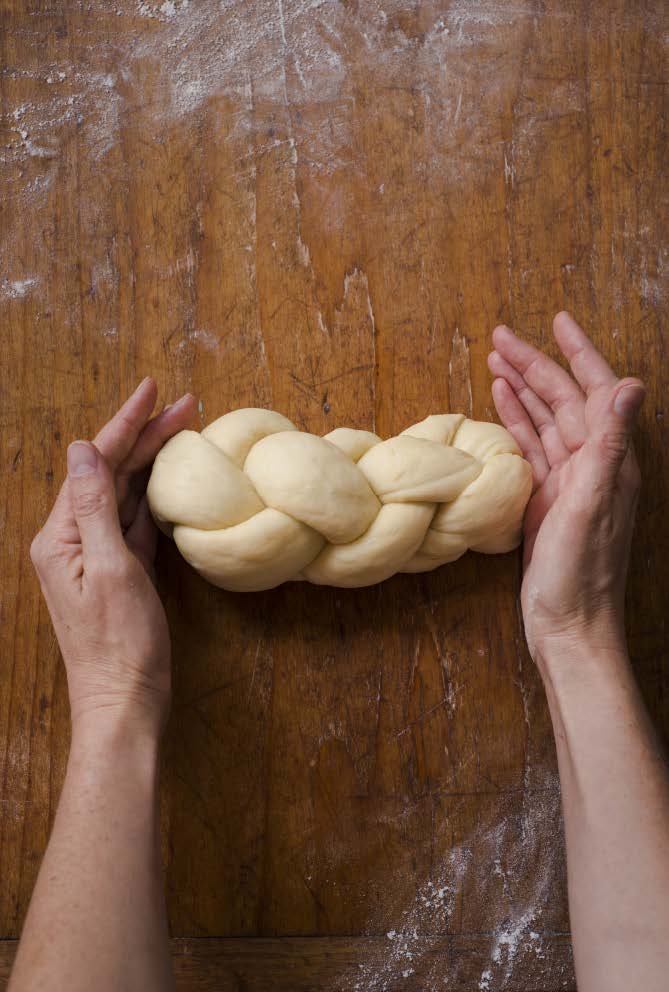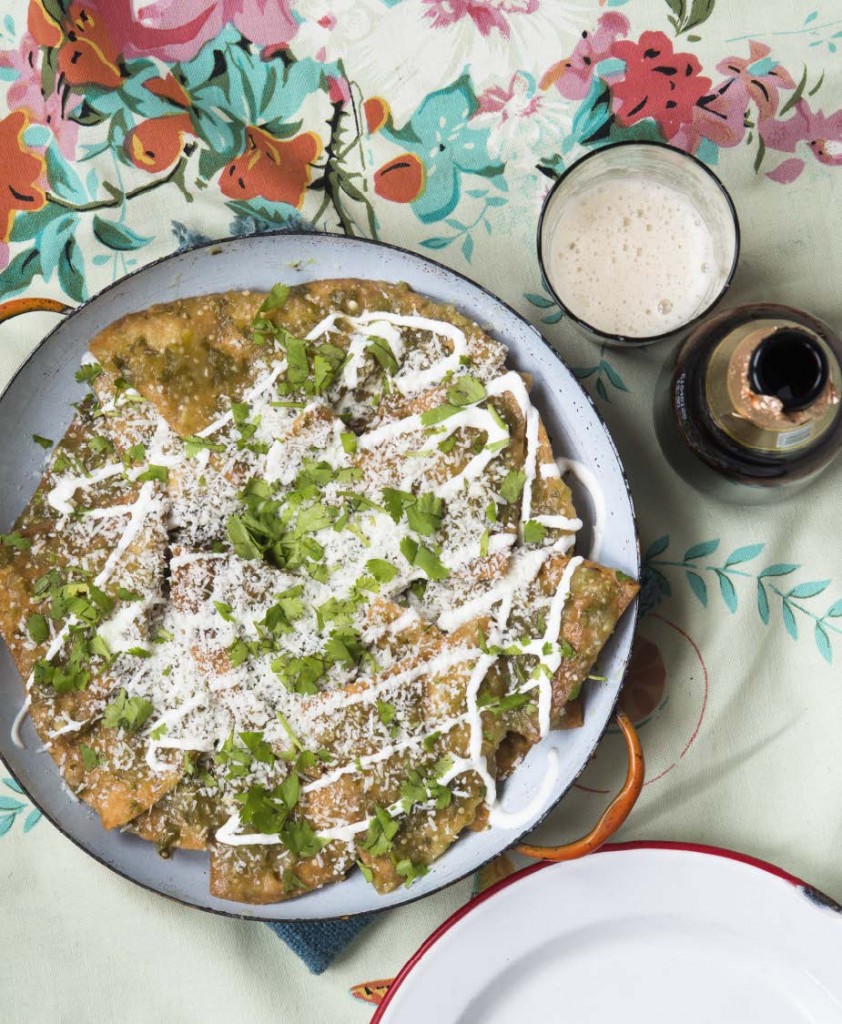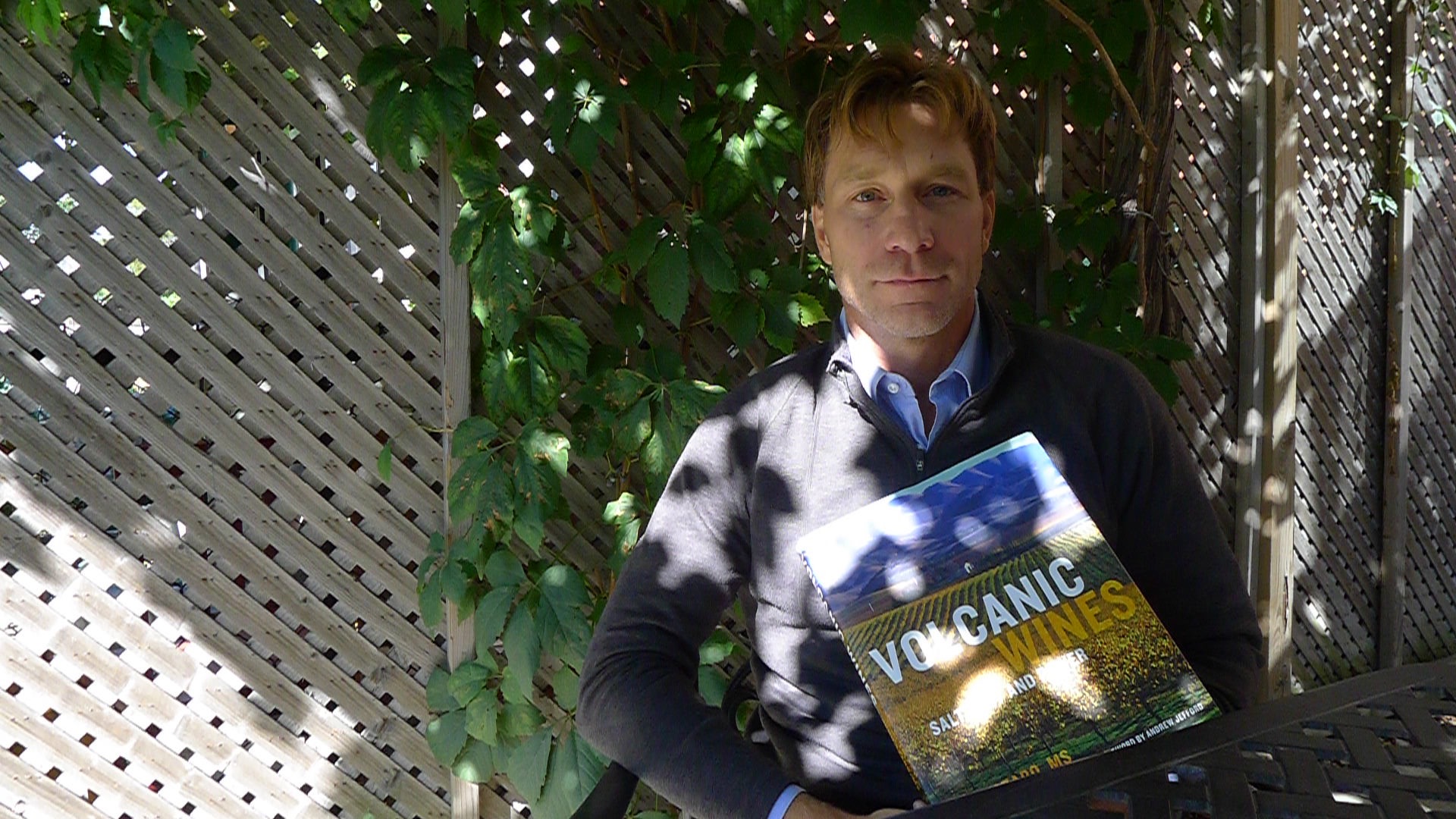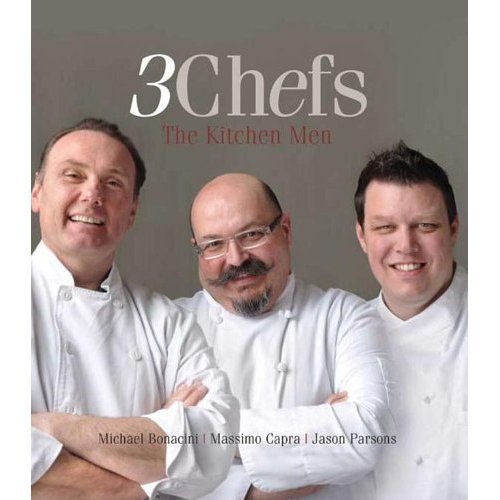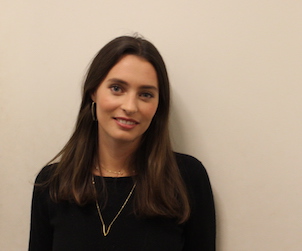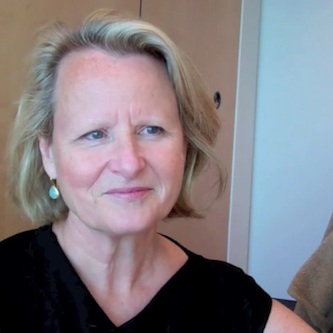Jessamyn Waldman Rodriguez is the founder and CEO of Hot Bread Kitchen an innovative and successful bakery-based social enterprise in New York City. The Toronto native, who ended up in New York working for a UN agency, combined a love of cooking with a commitment to improve the lives of immigrant women into a job training organization that bakes all manner of breads from around the world and sells them all around New York. Housed in Harlem’s La Marqueta, Hot Bread Kitchen is also an incubator, and rents commercial space to new businesses started by immigrant women, many of whom trained right there.
Rodriguez and her organization became known to GFR this fall with the publication of her (and its) new book, The Hot Bread Kitchen Cookbook. The book is a comprehensive compilation of simple breads from around the world, from Ethopian injera to Domican Corn Bread and just about everytig else in between. It also tells the story of Hot Bread Kitchen and the compelling stories of many of the ladies who work there; not least Rodriguez herself.
I spoke to her recently on the phone from her offices in Harlem to conduct the interview below.
This interview has been edited for style and clarity. All photos by Jennifer May.
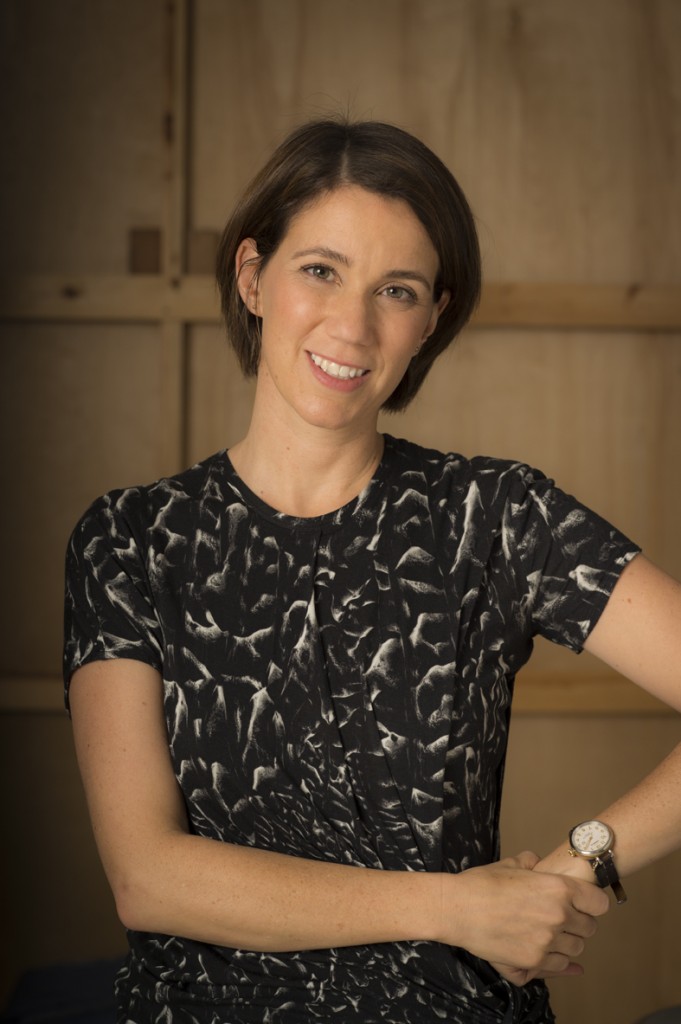
Good Food Revolution: As is sometimes the case, I didn’t read the backgrounder on your book when it arrived, and like most people (I think) when I approach a cookbook for the first time, I just kind of dive in. I don’t start by reading the introduction. So, at first I wasn’t sure what to make of Hot Bread Kitchen, I thought maybe you were a bread expert who traveled the world or something, except there also seemed to be a bakery where all these recipes were coming from. It was only after I actually read the introduction and Googled you a little bit that I figured out what was going. It sounds like you’ve had a pretty amazing journey, anyway.
Jessamyn Waldman Rodriguez: It has been an amazing journey. I had the idea for Hot Bread Kitchen when I was young still living in Toronto and, in a way, I think the idea is quintessentially Canadian. Growing up in Toronto you very naturally have an appreciation for good food and good ethnic food. Our education sets us up to really value the contributions of immigrant communities. But then, I didn’t have any money or management experience or way to get the idea off the ground. Through a circuitous route, I ended up living in New York City, I didn’t love what I was doing in my job and ended up giving Hot Bread Kitchen a shot here.
GFR: OK, so as I understand it you were building a career in the NGO and UN world, focusing on issues around immigration, but when you decided to get serious about opening a bakery that employed immigrant women, you not only went to culinary school, but you ended up apprenticing for Daniel Boulud. That’s pretty intense.
JWR: There was some good luck in there. It wasn’t totally out of the blue, though. I am a food obsessive. I used to be in these staid policy jobs thinking about what I was going to have for dinner, or where I was going to go for lunch. I was the one who cooked a lot, and was known among my friends as the hostess with the mostess. I was an entertainer who loved being in the kitchen. And I remember every meal I have ever had. My husband in is the wine business, and he was the entrée into Daniel, and he remembers every bottle of wine. So, it wasn’t out of the blue that I would try a career in baking and food production, but I felt like when I got the apprenticeship at Daniel, which was hard, I did it with the full intention of starting Hot Bread Kitchen as a hybrid social exercise, but it was also a test to see if I would enjoy commercial production. I had to make sure I would enjoy working in a professional kitchen.
GFR: I guess you passed the test.
JWR: I loved it. I felt so much happier in my work space than I ever had before.
GFR: So, you start your business, or enterprise in your apartment.
JWR: We were there for a very short amount of time, and then we moved into a shared commercial space in Queen’s.
GFR: And now you have this amazing looking facility in La Marqueta in Harlem and now you are the shared kitchen facility.
JWR: Exactly! La Marqueta is kind of like the St. Lawrence Market, though not nearly as beautiful a building. It was pretty empty when we moved in here, so I had this idea about how to raise the big capital dollars that are required to build out a commercial baking facility. Under the Bloomberg administration, New York City was interested in ways to improve small business support and they were looking to reactivate La Marqueta. They put out an RFP looking for an incubator. Many of the women who had come through the Hot Bread Kitchen program as bakers, at that point and to date, identified as entrepreneurs. So I thought I could fill most of the incubator spaces with women who had come through the job training program. We launched the culinary incubator program and it’s added a really interesting aspect to the work that we do. Since we started we’ve had, I think, 137 new businesses come through that program.
GFR: Wow.
JWR: That’s not just bakers. It’s all sorts of entrepreneurs: we’ve had a Senegalese caterer, a Nigerian caterer, an Ecuadorian caterer, cupcake makers, jam makers, and all sorts of crazy food businesses working out of that space.
GFR: How do you collect these people?
JWR: How do they find us? The two different programs have two recruitment programs that are similar. For Bakers in Training, it’s either referrals for women who have been through the program, walk-ins at La Marqueta, or through community partners. There are all kinds of non-profits in the city that are working with women with barriers to employment. Then, on the Incubator Program, it’s a little less straightforward. It’s a ton of word of mouth. Again, there are a lot of great business support organizations and we work with them to generate applications. And then, I think the program is so unique and it’s such an asset driven program – we’re the only one in Manhattan – that people Google it and seek it out aggressively. They do the work for us.
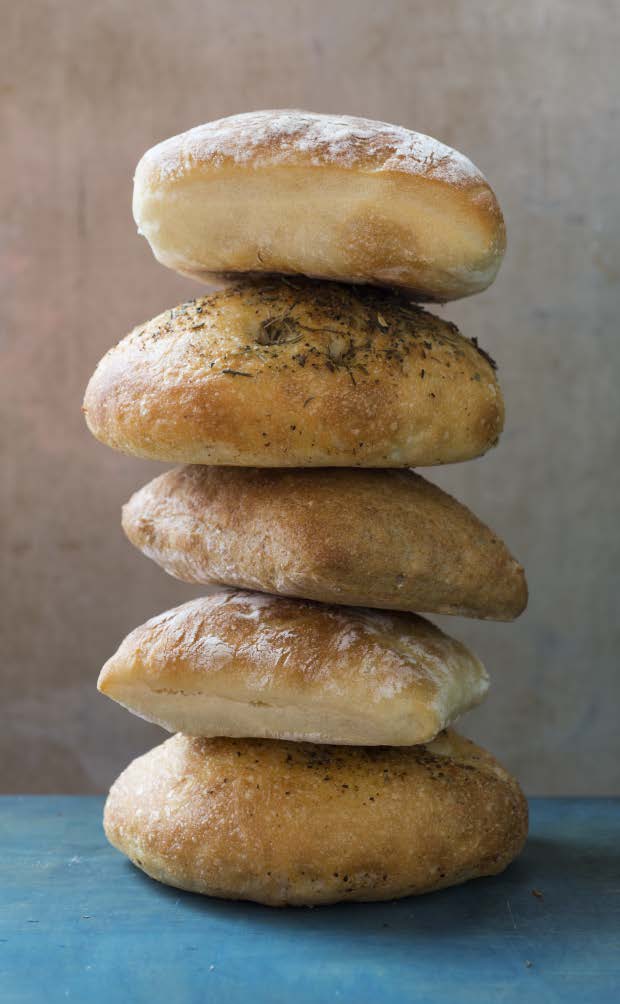
GFR: OK, back to the book. I really thought at first this was a Naomi Dugiud-style travelogue of baking recipes. But these are the recipes of the women who came to you?
JWR: Exactly. This year we will train 30 women and graduate 20 through the Bakers In Training program. But we won’t introduce 30 new breads to our product line. So, many of the breads are inspired by the countries the women come from, but not all of them. We’re a social enterprise and we are trying to balance our budget, so we are responsive to market demands.
GFR: Right. You’re a business.
JWR: Yeah. We sell to about 90 different locations around the city. We distribute fresh bread every day direct to customers or distributors. And we sell through the farmers’ markets. I never wanted to start a bakery that wasn’t socially driven, and I never wanted to start a non-profit that wasn’t an enterprise. From the very beginning I have pushed very hard on both pieces of Hot Bread Kitchen. I think what has made us kind of a stand alone is our earned revenue from our bread sales and the rentals from the kitchen. That’s about 70% of our budget. That’s a huge portion for a non-profit organization.
GFR: So, back to the recipes: we have established that these are breads people like.
JWR: The Hot Bread Kitchen Cookbook was a wonderful opportunity to tell our what vision is of the bakery. So, some of the breads in the book are in production at our bakery, but others are not: they are the breads that people bake at home. This is not the authentic tour of India, Indian foods and all the spices. This is the food that immigrant women are making at home for their kids and families in New York City using ingredients you can buy at your local grocery store. The breads fall into this category, and the accompaniments to the breads tend to be really user-friendly, accessible recipes. It’s what the women make on a Tuesday night when they come home from work. That’s what I love about the cookbook. The recipes work, they’re easy and accessible and they’re delicious.
* * *
 Malcolm Jolley is a founding editor of Good Food Revolution and Executive Director of Good Food Media, the company that publishes it. Follow him on Twitter or Facebook.
Malcolm Jolley is a founding editor of Good Food Revolution and Executive Director of Good Food Media, the company that publishes it. Follow him on Twitter or Facebook.

